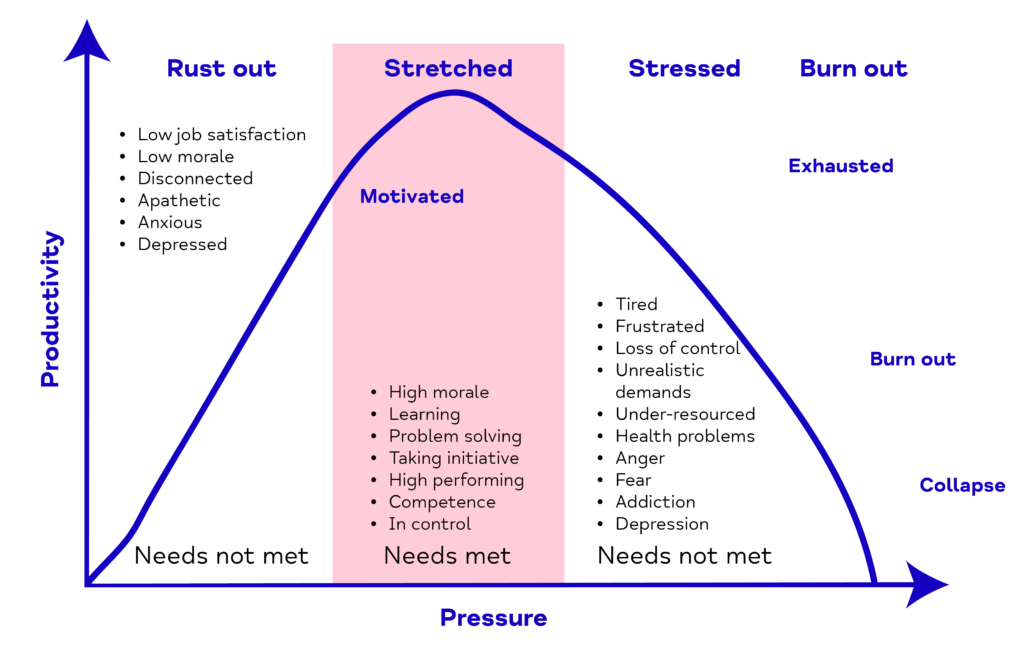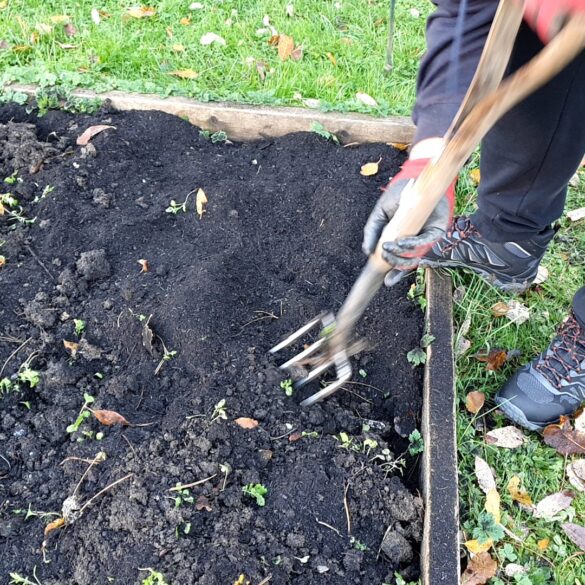Stress is nature’s warning system
Our lives are full of warning symbols and alarms, but why aren’t we good at recognising our own? Cars know when something isn’t right and flash the dreaded engine management light. Phones tell us they have needs through battery warnings and software updates. But what does our body do when it knows our needs aren’t being met? It starts to feel stress.
What is stress?
Stress is nature’s way of telling us one or more of our emotional needs aren’t being met. Our twelve needs include:
- Food & Drink, Movement and Sleep
- Control, Security and Privacy
- Achievement, Status and Meaning & Purpose
- Community, Attention, Emotional Connection
When you aren’t meeting one or more of these needs, especially for a longer period of time, you’re likely to feel stress. And, stress is the crossover point from wellbeing to mild to moderate mental ill health.
Stress can present in many different ways and we are all likely to experience different symptoms. However these can include headaches or dizziness, difficulty concentrating, feeling overwhelmed or a change in sleep.
It is important to learn how your body presents stress, and what it feels like for you.
Why is a ‘little stress’ not good for us
We might hear the phrase ‘a little stress is good for you’ or ‘stress gets things done’. However, if we understand that stress is our alarm system, we shouldn’t ignore it. Instead, learn to recognise when you feel stressed and try to identify what might be the cause.
It could be that there are changes at work which are affecting your Control and Security. It could be that someone in your family is poorly and you gain caring responsibilities. This could affect your physical needs, as well as your Attention, Privacy and Emotional Connection. It could be roadworks on a journey somewhere that is adding pressure to your day.
If you can recognise stress and identify the cause, you might find ways of managing it.
Changes at work might be out of your control, but perhaps making a small savings pot or making a few cost cuts could add some Security. Taking control of the food shop and cooking for a while could give you some choices back.
Those new caring responsibilities could be balanced a little by taking a 10 minute break by yourself, or scheduling ‘visit’ time separately from ‘caring’ time.
And the roadworks… well, you can pop the radio on and enjoy those extra minutes listening to music you like or joining in the pop quiz. Or hands-free calling ahead to let someone know you’ll be a little late.
Rust out and burn out
At Suffolk Mind, we talk a lot about the Human Function Curve. It’s like a section of a roller coaster, with each end hitting a low point. On the rise and peak, you see ‘stretch’ but as the pressure mounts, productivity drops and we see ‘stress’.
The two ‘dips’ are rust out and burn out.
Rust out is when you’re not being stretched or feeling like you’re achieving. This doesn’t have to be work related, it could be as you’re raising a family, looking after yourself, or through a hobby.
The feeling of rust out includes:
- Low satisfaction
- Low morale
- Anxious
- Depressed
- Low self esteem
- Disconnected
This indicates that your needs are not being met, and you need to look for ways to stretch yourself, either personally or professionally.
The opposite of rust out is burn out. This happens after stress on the curve. There’s too much pressure and productivity drops.
The feeling of rust out includes:
- Tired
- Frustrated
- Loss of control
- Anger
- Fear
- Depression
This means that your needs are not being met, and you need to find ways to meet them again. This could start with making a list of things you can control and things you can’t control.
What’s different about ‘stretch’
When you’re in ‘stretch’ you are feeling motivated and you are achieving. You are safely out of your comfort zone and you have the resources you need to get the job done.
Stretch feels like you are:
- In control
- Taking initiative
- Achieving
- Learning
- Growing and developing
- Problem solving
- Having ideas
We train lots of people and businesses about mental health, signs of stress and ways to create stretching work environments. We also have services to support people to get the balance back.












